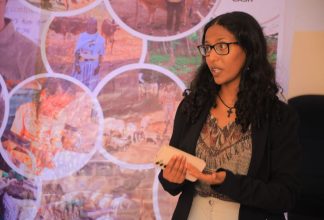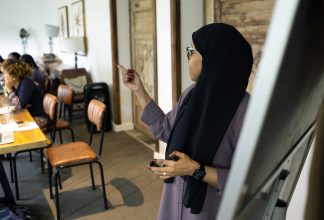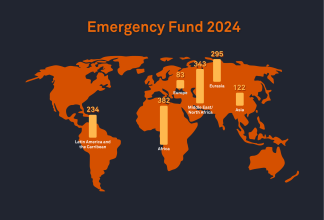South Sudanese plaintiffs take the stand in the Lundin Oil trial

Today marks the beginning of a new phase in the Lundin trial as plaintiffs from South Sudan will be heard in court for the first time about the events where 12,000 people are reported to have been killed, and 160,000 displaced.
“We will finally hear from some of the people in South Sudan who have been affected. Their perspectives have been completely absent in the courtroom, and we must not forget that this trial is about them and their chance to seek justice,” says Ebony Wade, Legal Adviser at Civil Rights Defenders.
Eight months have passed since the historic trial against two representatives of the Swedish oil company Lundin Oil, now Orrön Energy, began. Ian Lundin and Alexandre Schneiter are indicted with complicity in grave war crimes committed by Sudan’s regime. Both the prosecution and the defense have presented their arguments. Now it is time for the plaintiffs to be heard.
For them, this is about justice and redress; the trial is their chance to have their voices heard.
Ebony Wade, Legal Adviser
“There are very few means today for victims of war crimes to obtain redress. That is why this trial is so important. The plaintiffs in this trial indirectly represent the thousands of victims in South Sudan who do not have the opportunity to tell their stories,” says Ebony Wade.
Fear of plaintiffs dropping out
In November last year, the Stockholm District Court decided that the plaintiffs in the Lundin trial would not have the opportunity to have their damage claims tried as part of the criminal trial. This decision makes it nearly impossible for the victims to receive compensation as it will likely be too costly for them to pursue the case as a civil matter. However, this decision has not deterred any of the plaintiffs from testifying.
“There were some concerns that plaintiffs might withdraw from the case once it became clear that they would not be able to receive any damages via the criminal case. But for them, this is about justice and redress. The trial is their chance to have their voices heard,” says Ebony Wade.


